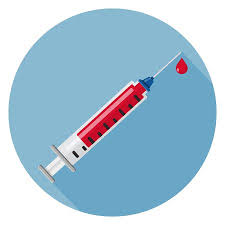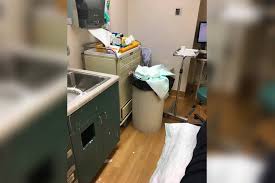Understanding Blood Draw Requirements in DWIs
 Nobody wants to have their personal space invaded or their bodily integrity compromised. But police officers often order DWI blood tests from people during Driving While Intoxicated (DWI) investigations to determine that person’s Blood Alcohol Concentration (BAC). BAC refers to the percent of alcohol in a person’s bloodstream and is a factor when determining whether to file a DWI charge. Understanding blood draws in DWI cases can be confusing because the legal process of taking a blood sample is a complicated area of the law. As with other DWI laws, there are legal requirements that must be met for a blood draw after a DWI, BWI, or DUI arrest.
Nobody wants to have their personal space invaded or their bodily integrity compromised. But police officers often order DWI blood tests from people during Driving While Intoxicated (DWI) investigations to determine that person’s Blood Alcohol Concentration (BAC). BAC refers to the percent of alcohol in a person’s bloodstream and is a factor when determining whether to file a DWI charge. Understanding blood draws in DWI cases can be confusing because the legal process of taking a blood sample is a complicated area of the law. As with other DWI laws, there are legal requirements that must be met for a blood draw after a DWI, BWI, or DUI arrest.
Many in the legal community consider Mimi Coffey a knowledgeable criminal attorney on the subject of DWI due her 25 years of experience and board certification in DWI Defense by the NCDD. Mimi knows that any Texas DWI arrest can cause a great deal of stress and anxiety. She also knows that the fear of the moment can sometimes cloud a person’s memory of the arrest. Mimi conducts a full case evaluation to determine the strongest points of a client’s case, and to help them refresh their memory of the arrest. During this evaluation, Mimi goes over all of the evidence, including video, and gives recommendations on how best to proceed.
Here is a simplified explanation of the blood draw requirements from a DWI Lawyer in Arlington. A DWI blood draw has two main requirements: 1) a qualified person must perform the blood draw, and 2) the blood draw must occur in a “sanitary” place. Texas Transp. Code § 724.017(a) and (a-1). There is one important thing to note before getting into the details, though. Keep in mind that police can “force” a blood draw by getting a warrant even when a person refuses.
Qualified Person Requirement
The statute lists five broad categories for persons qualified to perform a blood draw:
- a physician;
- a qualified technician;
- a registered professional nurse;
- a licensed vocational nurse; or
- a licensed or certified [EMT] authorized to take a blood specimen under subsection (c).
Subsection (c) has some specific restrictions. But, to put it simply, an EMT can only perform a blood draw if authorized by the EMT’s medical director and using protocol established by the medical director. Stated another way, an EMT is not a “qualified technician” under the statute. A phlebotomist is usually, but not always, a “qualified technician” for blood draws. In essence, a “qualified technician” is someone not in the other categories but is “qualified” because of education, experience, etc..

Does this hospital room look sanitary?
Sanitary Place Requirement for a Blood Draw
The “sanitary place” requirement, however, can be somewhat confusing. Part of the reason for confusion is that the statute does not define what “sanitary” means. There is also very little case law that defines “sanitary” for blood draws. Unfortunately, most of the caselaw says that a place only has to be “safe” rather than “ideal” to count. Some cases say that taking a blood draw on the floor of a place is not sanitary. This is the case even if the place itself is sanitary.
However, the Health and Safety Code can provide some minimal insight into what “sanitary” might mean. The code defines sanitary as “a condition of good order and cleanliness that precludes the probability of disease transmission”. This definition is only somewhat helpful. The code then defines public nuisance, which is a bit more helpful. Some of the key examples that we have seen in the past could fall under a public nuisance. These public nuisances include:
- a place, condition, or building controlled or operated by a state or local government agency not maintained in a sanitary condition;
- sewage, human excreta, wastewater, garbage, or other organic wastes deposited, stored, discharged, or exposed in such a way as to be a potential instrument or medium in disease transmission to a person or between persons;
- a place or condition harboring rats in a populous area;
- an object, place, or condition that is a possible and probable medium of disease transmission to or between humans.
More about Mimi Coffey & The Coffey Firm
When people look for a Top DWI Attorney or Best DWI Attorney, they look for experience, certification, and respect in the legal community. Mimi Coffey is a nationally-renowned trial attorney, board-certified in DWI by the NCDD. She has been practicing for over 24 years and is an author of multiple DWI Defense textbooks. She is also a national and state-wide lecturer on the law.
The Coffey Firm handles a wide variety of cases, including Unlawful Carrying Weapon (UCW), Assault (including family violence), and Possession charges. We can also help you try to seal your record or avoid probation revocation.
Mimi is also listed on several “top criminal lawyer near me” directory listings such as DWI Lawyers for Wise County, DWI Lawyer Tarrant County, DWI attorney Dallas County, DWI attorneys Collin County and DWI attorneys Parker County. Mimi is a caring DWI Lawyer in DFW, She is also involved in the Texas Tech School of Law foundation and enjoys using the skills she has developed to give back to the community.

